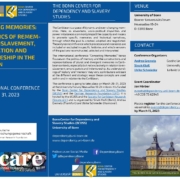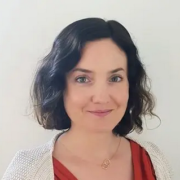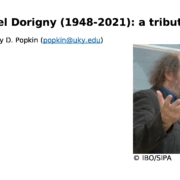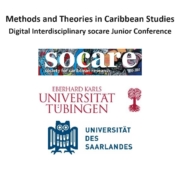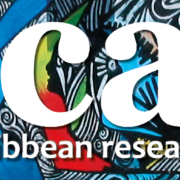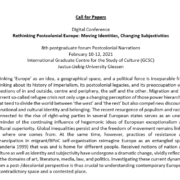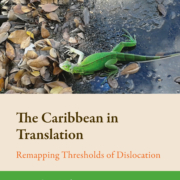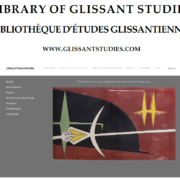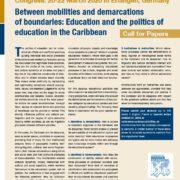Socare Junior Conference – Open Call
The next Socare Symposium / Junior Conference will be held as a digital conference from October 28 – 30th, 2021 (Thursday to Saturday).
Please note our Call for Participation and apply by July 31st: http://caribbeanresearch.net/en/socare-symposium-2021/
Upcoming XVII. Socare Congress: Schedule online
The schedule for the XVII Socare International Congress is now online: http://caribbeanresearch.net/en/2020-conference/, together with the access links to the conference. Please note that in order to participate, you have to register in advance for each meeting.
The main conference theme is education and the politics of education in the Caribbean. As it is a longstanding Socare tradition, multilingual discussions and presentations around the conference theme will be held from transdisciplinary and transregional perspectives.
Highlights:
– Keynotes by Silvio Torres-Saillant, Corinne Mencé-Caster, and Gema Valdés Acosta
– Socare best dissertation award ceremony
– Online-performance by Simone Lagrand
– 2 days of paper presentations and discussions
We are looking forward to seeing you at the conference!
Best regards,
The Organizing Commitee
Call for Papers “Rethinking Postcolonial Europes: Moving Identities, Changing Subjectivities” (Digital Conference; February 10-12, 2021)
Digital Conference
Rethinking Postcolonial Europe: Moving Identities, Changing Subjectivities
February 10-12, 2021
International Graduate Centre for the Study of Culture (GCSC) Justus-Liebig-University Giessen
Full CfP: CfP_rethinkingEurope
New Book: The Caribbean in Translation – Remapping Thresholds of Dislocation
This book investigates twentieth- and twenty-first-century Caribbean literatures in translation. Covering three of the largest linguistic areas of the region, the so-called English, French and Spanish-speaking Caribbean, the volume offers a comparative study of the region’s literary output across a variety of genres, including poems, novels, short stories and essays. Caribbean texts and their translations are analysed through the prism of the threshold, which serves a dual purpose: on a textual level, thresholds correspond to paratextual elements (e.g. prefaces, afterwords, foot/endnotes, glossaries, blurbs…) that are used by various cultural agents to frame Caribbean literatures for global, regional and local audiences. On a broader level, thresholds, which both open into but also signal a limit or break, allow the author to examine and remap routes of (non) circulation for Caribbean literatures within regional, national and transnational frameworks. Analysing liminality alongside Glissantian notions that interrogate authorship, transparency, originality and hospitality in translation, the book tests the applicability of relational thinking to the imperatives of translation and literary circulation. Ultimately, the author asks whether traditional core-periphery models of global literary traffic can be challenged, inviting the reader to envisage alternative pathways of cultural exchange for and from Southern, archipelagic latitudes.
Socare Conference and General Assembly Postponed (New Date: March 5 & March 12-13, 2021)
Due to the current developments resulting from the coronavirus, we have decided to postpone the SOCARE congress in Erlangen, originally scheduled for March 20-22, 2020, and the general assembly, scheduled for March 21.
Considerations on various levels have informed this painful, but in our view necessary decisions. For instance, numerous participants have expressed serious concerns because of the virus. Furthermore, universities in different countries have imposed travel restrictions on their staff, or are considering to do so. Some German universities have begun to ban events and meetings.
Under these conditions, neither the congress nor the general assembly could have been carried out successfully (and with a reasonable number of members).
The new date for the general assembly is March 13, 2021 that will take place online during the also re-scheduled congress (March 5 & March 12-13, 2021; for further information visit http://caribbeanresearch.net/en/2020-conference/).
We continue to look forward to the assembly and to the congress and are confident that we can carry it out under much better conditions in March.
The Socare Executive Board
Presentation: Library of Glissant Studies
“This collaborative open access project aims to collect and make works by and on Martinican author Édouard Glissant (1928-2011) widely accessible. The Library of Glissant Studies is a unique tool that draws on Alain Baudot’s 1993 Bibliographie annotée d’Édouard Glissant (Annotated Bibliography of Édouard Glissant) which contains more than 1300 references. LoGS is a multilingual database dedicated to making texts by and about the Martinican author Édouard Glissant accessible and widely available. The objective of LoGS is to centralize information, in whatever original languages they may have been produced, on Glissant’s work and thought in an open access gratis website, linked to multiple physical and digital archives which contain his manuscripts, and other printed and multi-media materials.“
You may find the website here and a comprehensive presentation of the project here.
CfP – Between mobilities and demarcations of boundaries: Education and the politics of education in the Caribbean
The politics of education can be understood as official and unofficial practices guiding individual and social processes of educational and intellectual formation and as the discourses that legitimate these practices. They are the center of the social, economic, and cultural dynamics of societies and play a key role in the collective construction of identities and in ethical debates about diversity. They ensure social continuity by reproducing and legitimating collectively shared assumptions, values, and aesthetic judgements. At the same time, they often set the stage for social controversies and debates. Overall, educational politics constitute one of the most powerful motors for social transformation. Through them, access to relevant forms and practices of knowledge can be granted or denied. This directly influences political and cultural participation and the degree of socio-economic mobility within societies, as well as migration processes between different societies.
In this sense, the Caribbean and its diasporas, seen as social spaces, constitute an especially promising field of study, for their traditionally complex forms of geographic mobility, their strong linguistic, cultural, and social fragmentation, their intense demarcations along ethnic and social lines and their profound processes of transculturation. This constellation creates complex dynamics, closely intertwined with cultural and social questions, which manifest themselves in the educational system and its policies. Our conference is thus engaged with the following questions: How do Caribbean educational politics facilitate mobility or, on the contrary, contribute to the drawing of boundaries? How do internal and global processes of circulation (of people, objects, and knowledge) shape educational policies? Unlike in empirical educational research, whose main goal is the generation of actionable knowledge for further development of educational systems, this conference focuses on embedding educational processes in the cultural, linguistic and social dynamics of Caribbean societies, while placing a particular focus on their historical development.
For this purpose, educational practices and discourses will be analyzed from a transdisciplinary perspective, which will take into account the delimitations and demarcations of boundaries instigated by educational politics and their resulting (dis)continuities. The following three fields of observation will be given special emphasis:
1. Mobilities & Immobilities: How is access to education organized in the Caribbean and its diasporas? What factors enable or prevent the permeability of the educational system and social mobility? What educational biographies are typical and by what modes and pathways does knowledge circulate within and through the educational system?
2. Identities & Demarcations: How does the construction of identity interact with educational processes in Caribbean societies (and their diasporas)? What kind of narratives of identification and demarcation are propagated in official and unofficial educational practices? How do educational discourses and practices contribute to hybridization and reformulation of individual and collective identities?
3. Institutions & Authorities: Which educational processes control the differentiation of local, regional or transregional social norms in the Caribbean and its diasporas? How do linguistic and cultural standards interact with non-standard practices and expressions? How does cultural and artistic canonization work, and how do they relate to official educational canons?
Contributions from all humanities and social sciences are appreciated, provided that they cover educational discourses and policies in the Caribbean and its diasporas with respect to the questions outlined above and that they allow for transdisciplinary discussions.
Please submit your abstract (up to 500 words in English, French or Spanish) before October 31, 2019 to conference-caribbean2020@fau.de. Contributions from the Caribbean are especially welcome. A limited number of travel allowances for accepted speakers is available from the organization team.
Organizers:
Prof. Dr. Silke Jansen, Erlangen
Prof. Dr. Miriam Lay Brander, Eichstätt
Johannes Bohle, Flensburg
Dr. Anne Brüske, Heidelberg
Natascha Rempel, Hannover

